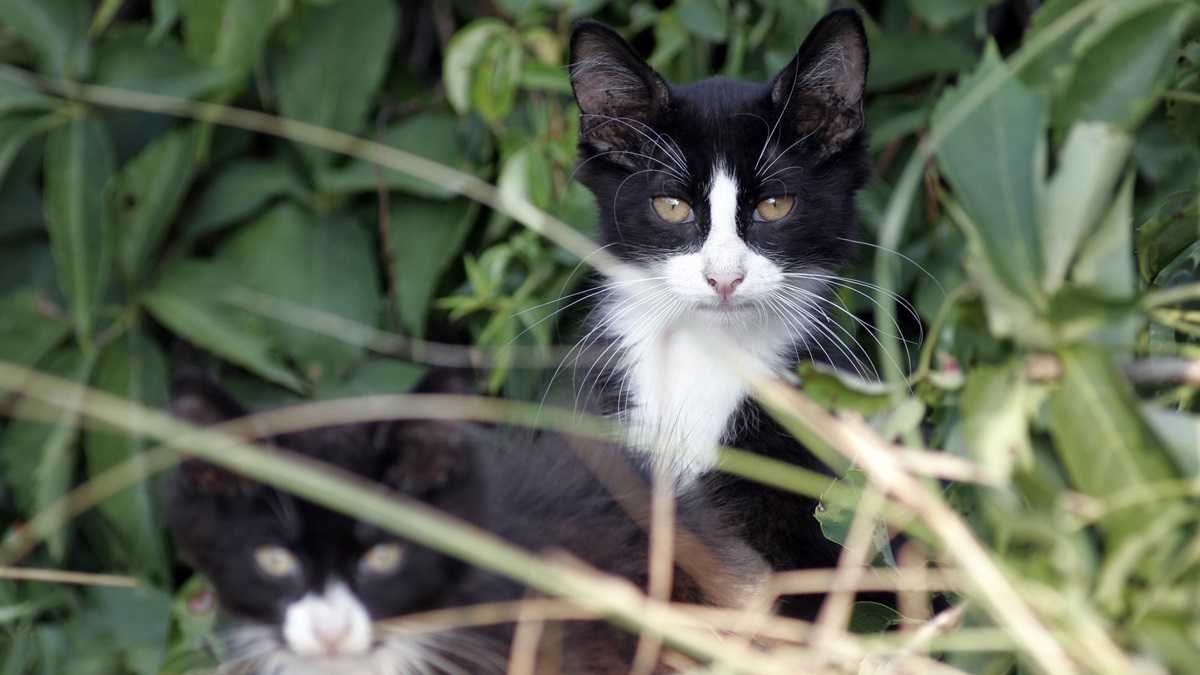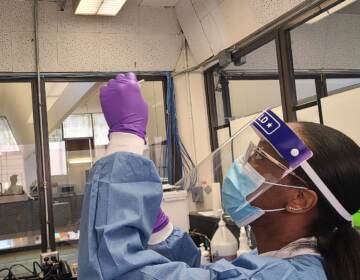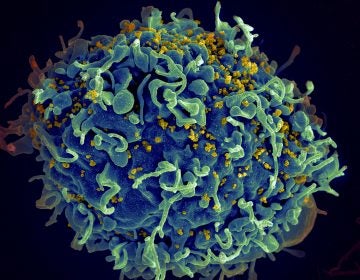Cats can get coronavirus. How worried should you be?
A study published in the journal Science now says the virus can infect both felines and ferrets. But there are some important caveats to the findings.

(AP Photo/David Gard)
New research shows that cats can, indeed, become infected with the new coronavirus.
Recently, there have been reports of several animals having the virus. Earlier this week, a 4-year-old tiger at the Bronx Zoo tested positive, the first known animal infection in the United States. In Hong Kong, two dogs have tested positive, as did a cat whose owner has COVID-19. A cat in Belgium also was found to have the virus.
A study published in the journal Science now says that out of cats, dogs, ferrets, pigs, chickens and ducks, the virus can infect ferrets and cats — and an infected cat can spread it to an uninfected cat living in the cage next to it.
But cat owners should not be very worried – there are some important caveats to these findings:
- The cats got the virus when scientists put 100,000 SARS-CoV-2 particles from a human patient directly up their noses — that’s a standard, but high, dose for an experimental infection. It is not known how much of the virus a cat needs to become infected.
- When the researchers tested whether an infected cat could spread the coronavirus to an uninfected cat, that happened in only one out of three pairs of cats being tested.
“All this study showed is that they could experimentally infect cats: It doesn’t mean that the virus is causing disease in the cat population, and it does not mean that cats can infect humans,” said Shelley Rankin, a professor of microbiology at the University of Pennsylvania’s School of Veterinary Medicine. “Whether or not this can happen in the wild … is still open to interpretation.”
Rankin explained that a virus has to bind to something, like a key has to fit a lock. Sometimes a new key fits a lock perfectly, sometimes it kind of fits and requires a bit of jiggling to get inside, and sometimes it doesn’t fit at all.
What the new study shows, she said, is that this coronavirus can kind of fit receptors in cats – it’s not a perfect fit.
Gary Whittaker, a professor of virology at Cornell University’s College of Veterinary Medicine, said all species have some version of the ACE2 receptor that the new coronavirus is reported to bind to.
“It so happens that ferrets and cats are the closest sequence-wise to a human ACE2,” Whittaker said. “So that could explain why cats and ferrets are getting just a little bit infected but not dogs or chickens or anything else.”
That means cat owners should just follow social distancing guidelines, and keep themselves free of the virus, and their cats will be fine, Rankin said. We can still play with our cats at home, snuggle with them, and pet them, as long as we wash our hands afterward — which, she said, we should be doing anyway. Feral cats most likely will not let people pet them regardless.
At the end of the Science article, the researchers refer to another article, which has yet to be peer-reviewed and published, about a study involving blood tests on some cats in Wuhan, China, before the outbreak and some cats after the outbreak. The study found that 15% of the cats tested afterward had antibodies for the coronavirus in their blood, and thus had come in contact with the virus. The researchers cite these findings, and their own, to say that scientists should consider testing cats for COVID-19 “as an adjunct to elimination of COVID-19 in humans.”
Rankin said the scientific evidence does not suggest we need to go there.
“Should my diagnostic lab at Penn Vet be testing cats for presence of this virus, or for antibodies that show me that they’ve been exposed, when there’s a hospital right down the street that needs those tests for sick humans?” she asked.
That’s an ethical question the veterinarians are talking about, Rankin said, but “just because the virus can infect cats doesn’t mean it will, and just because we can test for the presence of the virus in animals doesn’t mean we should.”
The American Veterinary Medical Association and the U.S. Department of Agriculture do not recommend routinely testing animals for COVID-19 at this point. Some animal diagnostic labs have developed tests for animals that are similar to the one for humans.
On Wednesday, a World Health Organization epidemiologist announced that the agency is working with the Food and Agriculture Organization and the World Organization for Animal Health to look more in depth into COVID-19 in pets.
Some veterinarians are taking extra precautions around cats, since the tiger in the Bronx Zoo tested positive.
Jennifer Jones, a vet who owns three clinics in Philadelphia, said her team talked to the veterinarians at the Philadelphia Zoo, and they now wear face shields and gowns when working with cats, in addition to face masks and gloves.
Since the start of the pandemic, Jones has also set up outdoor waiting areas, so people can drop off their pets while following social distancing guidelines.
WHYY is your source for fact-based, in-depth journalism and information. As a nonprofit organization, we rely on financial support from readers like you. Please give today.





![CoronavirusPandemic_1024x512[1]](https://whyy.org/wp-content/uploads/2020/03/CoronavirusPandemic_1024x5121-300x150.jpg)


